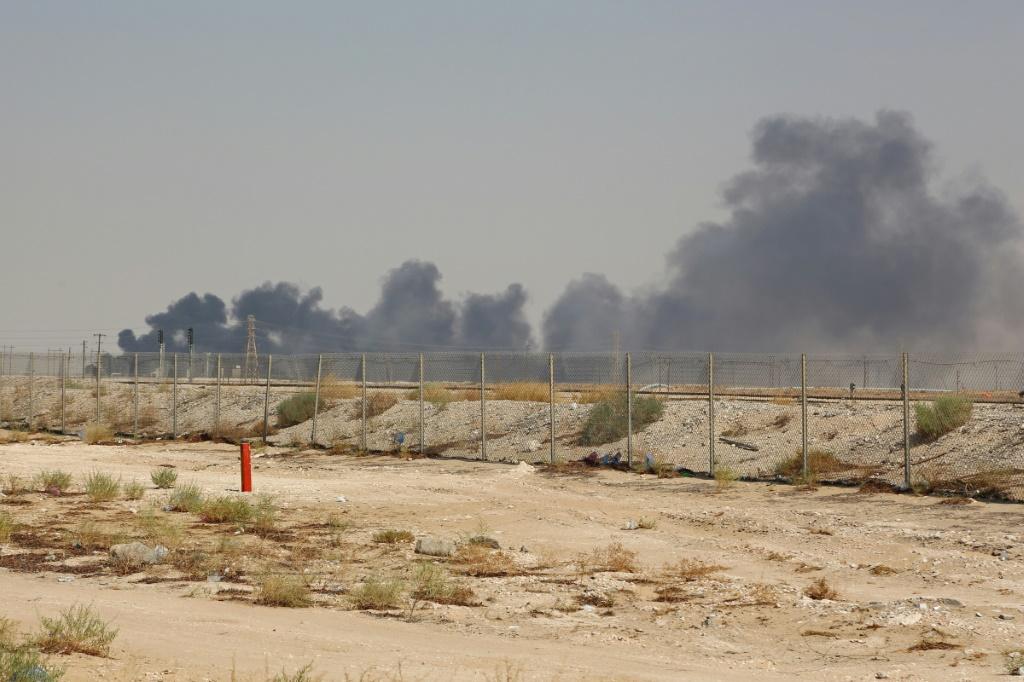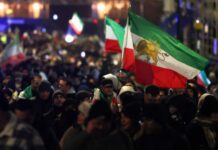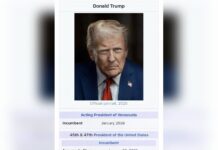LONDON: Oil prices made their biggest jump since the Gulf War Monday after President Donald Trump warned that the US was “locked and loaded” to respond to attacks on Saudi oil infrastructure that Washington blamed on Iran. It is the first time the president has hinted at a potential American military response to the drone attacks, which slashed Saudi oil production by half and led both the kingdom and the United States to announce they may tap their strategic reserves.
“Saudi Arabia oil supply was attacked. There is reason to believe that we know the culprit, are locked and loaded depending on verification, but are waiting to hear from the Kingdom as to who they believe was the cause of this attack, and under what terms we would proceed!” Trump tweeted. China on Monday urged the US and Iran to “exercise restraint… in the absence of a conclusive investigation or verdict”.
The Tehran-backed Houthi rebels in Yemen, where a Saudi-led coalition is bogged down in a five-year war, claimed Saturday’s strikes on two plants owned by state energy giant Aramco. But US Secretary of State Mike Pompeo pointed the finger squarely at Tehran, saying there was no evidence the “unprecedented attack on the world’s energy supply” was launched from Yemen. “The United States will work with our partners and allies to ensure that energy markets remain well supplied and Iran is held accountable for its aggression,” the top US diplomat said. That drew an angry response from Tehran, where foreign ministry spokesman Abbas Mousavi said: “Such fruitless and blind accusations and remarks are incomprehensible and meaningless.”
The White House said Sunday that Trump may still meet Iran President Hassan Rouhani at the UN meeting in New York next week, but Tehran said Monday it did not think “such a thing would happen”.
Baghdad, caught between its two main allies – Tehran and Washington – also denied any link to the attacks amid media speculation that the drones were launched from Iraq. Saudi de facto ruler Crown Prince Mohammed bin Salman has said the kingdom is “willing and able” to respond to this “terrorist aggression.” But a tit-for-tat strike on Iranian oil fields is “highly unlikely,” Middle East expert James Dorsey told AFP.
“The Saudis do not want an open conflict with Iran. The Saudis would like others to fight that war, and the others are reluctant,” said Dorsey, from the S. Rajaratnam School of International Studies in Singapore. The attacks sent oil prices sky-rocketing on Monday, with Brent futures up 12 — or nearly 20 percent — in the first few minutes of business, while WTI jumped more than 8, or 15 per cent.
It was the biggest rise since the 1990-1991 Gulf War.
Saturday’s explosions set off fires that engulfed the Abqaiq plant, the world’s largest oil processing facility, and nearby Khurais, which hosts a massive oil field. Saudi’s energy infrastructure has been hit by the Huthis many times before, but this strike was of a different order, abruptly halting 5.7 million barrels per day (bpd) or about six percent of the world’s oil supply. “The genie is out of the bottle,” said Bill Farren-Price, director of the London-based RS Energy Group.
“It is now clear that Saudi and other Gulf oil facilities are vulnerable to this kind of attack, which means that the geopolitical risk premium for oil needs to rise.” No casualties were reported but the full extent of the damage was not clear.
Aramco also said it will dip into its reserves to offset the disruption. On Saturday, CEO Amin Nasser said that “work is underway” to restore production, but the incident could affect investor confidence ahead of Aramco’s stock market debut. The company would need weeks to reach full output again, Bloomberg News reported Sunday, citing unnamed sources.
Trump tweeted that he had “authorized the release of oil from the Strategic Petroleum Reserve, if needed, in a to-be-determined amount” that is “sufficient to keep the markets well-supplied.” Tehran and Washington have been at loggerheads since May last year, when Trump pulled the US out of a landmark 2015 deal with world powers that promised Iran relief from sanctions in return for curbs on its nuclear program. Saudi Arabia has spent billions on military hardware but recent events have underscored the vulnerability of its infrastructure to attack. AFP







